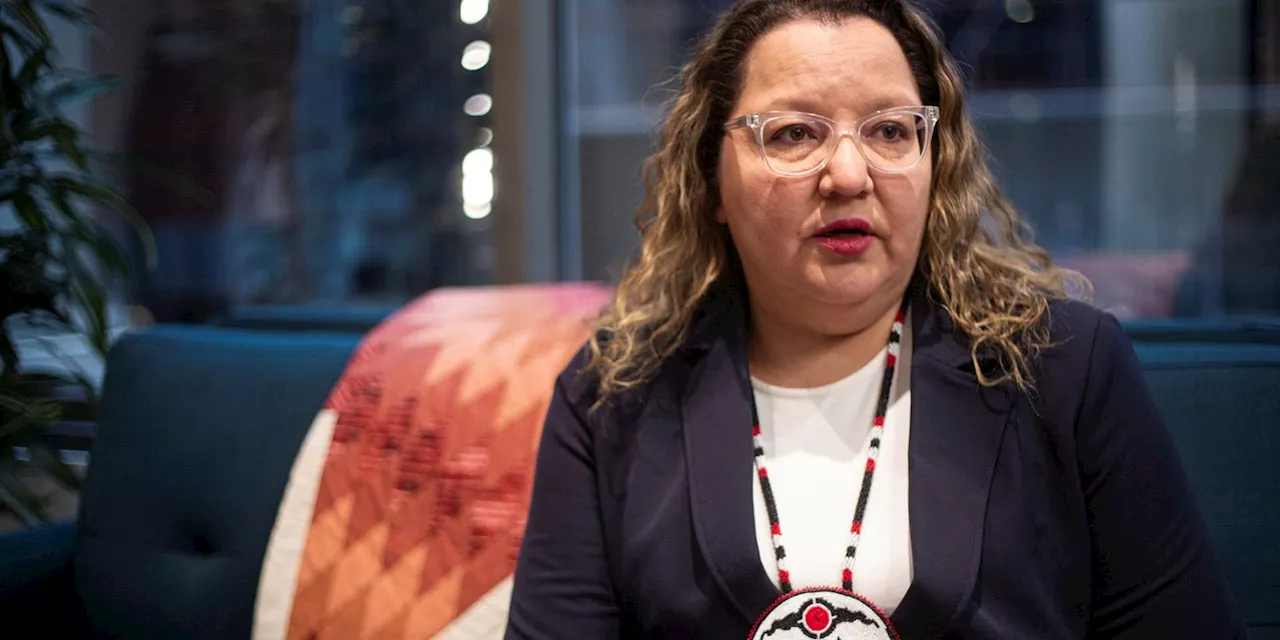Prime Minister Trudeau attends Jimmy Carter's funeral, Blair announces military aid to Ukraine, and Canada's premiers plan to meet with US politicians to counter Trump's threats.
Good Thursday morning, Prime Minister JUSTIN TRUDEAU is in Washington today. He’s there to attend the state funeral for JIMMY CARTER, who served as president of the United States between 1977 and 1981. While he’s in town, Trudeau will be meeting with unspecified 'U.S. business leaders,' according to the PMO, which, in a separate news release, said Trudeau would use some of his time in Washington to “reaffirm Canada’s commitment to a successful Canada-U.S. partnership.
” Defence Minister BILL BLAIR is over in Germany at the U.S. Air Force base in Ramstein, for another meeting of the Ukraine Defense Contact Group. The group includes representatives of about 50 different countries that have backed Ukraine in its effort to fight off the Russian invasion. Blair is planning to announce “additional military assistance” to Ukraine while he’s there. That includes “new donations,” according to the press release from Blair’s department—that doesn’t quite square with the current reality, in which Parliament isn’t around to approve new spending. As it turns out, the “new donations” are “new commitments of military assistance” being paid for with money approved via the 2024 budget, according to Blair’s spokesperson, ANDREW GREEN. Premiers set date for Washington mission Canada's premiers met virtually yesterday to discuss a plan to travel to Washington and push back in person against DONALD TRUMP's threats towards Canada. They agreed to head south on Feb. 12, according to a statement issued by B.C. Premier DAVID EBY yesterday. 'There, we will meet with Senators, House Representatives, and leadership from both sides of the aisle and outline the retaliation measures we’re willing to take and the devastating impacts of these tariffs on both sides of the border,' Eby said in his statement. The premiers are also planning to continue to meet individually meet with U.S. politicians to discuss the issue, and will be meeting with Trudeau next week, according to a statement from Alberta Premier DANIELLE SMITH, who will be among the Canadian officials heading to Washington for Trump's inauguration. 'Alberta’s government believes that the pathway to strengthening this relationship is to double our oil production and increase exports of crude oil to the U.S., enabling them to export even more light oil to the rest of the world. We took a first step in pursuit of this goal earlier this week when we partnered with Enbridge to expand their pipeline capacity,' Smith said in her statement. In the news Draft Dominic: ABBAS RANA reports on the effort by some in the Liberal caucus to convince Finance Minister DOMINIC LEBLANC to run for the Liberal leadership after he said yesterday he was counting himself out of the race to replace Trudeau. AFN compiles a ‘priority document’ for future parliamentarians after ‘ally’ Trudeau’s exit The national chief of the Assembly of First Nations, CINDY WOODHOUSE NEPINAK, says the AFN is putting together a list of focus areas for candidates in the upcoming election, after Justin Trudeau’s resignation and the prorogation of Parliament put the future of key legislation for First Nations in the lurch. The “priority document,” she told Politics This Morning, is meant to make incoming parliamentarians aware of the work that still needs to be done addressing First Nations communities’ welfare, including providing basic necessities like clean water, electricity, internet, housing, and health care. It will also provide a background on First Nations history and geographical distribution. “They should make sure that they're well versed on who First Nations are in this country … to make sure that they know what Canada really is. It is not just downtown Toronto or downtown Vancouver, but that there's First Nations from coast to coast,” she said. Bill C-61 would have enshrined First Nations’ right to self-govern the water resources on their lands into an act. It was years in the making, and had passed the committee stage in the House, but was scrapped when Trudeau requested Parliament be prorogued. This means the bill is back at the starting point, unless MPs provide unanimous consent for the legislation to be fast tracked after the prorogation is lifted on March 24. Woodhouse Nepinak said the AFN is urging the current office-holders to “do the right thing” on the act, and will be campaigning for consent to pass it quickly in March. “I get that sometimes people have their politics, but we shouldn't be playing politics with important issues such as access to clean drinking water,” she added. Ontario Regional Chief ABRAM BENEDICT echoed that view, and said he was “disappointed” to see prorogation undo the progress the bill had made in the last few months. If a general election is held in the spring, Benedict said he expects any future movement on the legislation won’t happen for months. Benedict began highlighting the importance of the bill to all other parties, he said, as Liberal election prospects dimmed before Trudeau’s resignation. TERRY TEEGEE, the regional chief of the British Columbia Assembly of First Nations, added that while the bill itself lacked a solid funding commitment, it was a step in the right direction. British Columbia AFN Regional Chief Terry Teegee. The Hill Times photograph by Andrew Meade Chiefs seek regional deals on child and family settlement Clean water is not the only priority issue that still needs to be tackled for Indigenous people. Teegee listed policing and housing as two other major problems that he said required urgent attention. All three chiefs agreed that any incoming prime minister must fill welfare and infrastructure funding gaps, which includes progressing negotiations on the Long Term Reform of the First Nations Child and Family Services Program. A final settlement agreement proposed by the federal government would have set aside $47.8-billion in the next 10 years towards child protection services and meeting the basic needs of Indigenous families, among other things. It aimed to revamp discriminatory Canadian child welfare policies, under which more First Nations children were taken into government custody than at the height of the residential school system, as per CBC. But it was voted down by First Nations leaders last October during a special assembly meeting. However, Ontario Chief Benedict has now resumed regional-level talks with the government to adopt the provisions in the draft for their province. “Our region has been supportive from the beginning and so we are prepared to negotiate with the federal government for it,” he said. While Woodhouse Nepinak welcomed this development, she also expressed disappointment that the feds will not be carrying out national-level talks on the agreement. Teegee said the B.C. AFN would also be willing to look at a regional deal if it would suit the needs of their local people, and his team is currently compiling data on the level of funding needed for that purpose. “We want to make sure that everything is taken into account for this,' he said, including population size, and for funding to be flexible so that it increases with inflation. But even if these discussions are set into motion, it's unclear if they could be concluded before the general election is announced. Despite these challenges, the chiefs told Politics This Morning they believed Justin Trudeau had done more for Indigenous communities during his tenure as prime minister than any other government in Canada’s history. “While we still have many generational and rights challenges that remain unresolved, the prime minister has been an ally for meaningful reconciliation, and set a new standard for future prime ministers to exceed,” Woodhouse Nepinak said. Teegee said former Conservative prime minister STEPHEN HARPER’s reign had been some of the hardest years for Indigenous people in the country. Benedict, too, said the Liberals made some significant investments in their communities, unlike other governments. “We can always argue that they don't go far enough. But investments are made… We have an Indigenous Languages Act across this country now, which we've never had before,” said Benedict, listing some of Trudeau’s achievements. The likelihood of a next Conservative government has triggered some concern among the chiefs. Benedict, for one, said he is apprehensive about the implications for policies around climate change, which he said heavily impact First Nations across the country. But Woodhouse Nepinak said the AFN is prepared to work with whatever government is in power, and push for Indigenous rights. Their priority document, she said, is one of the ways they are preparing for the possible transition. “First Nations can't be left to the sidelines. And we'll continue to talk to the Conservatives day in and day out,” she said. Today’s data Statistics Canada is releasing new data today on tourism, government finances, deaths in Canada, and the use of monetary penalties in the criminal justice system, among other topics. You can find it all here beginning at 8:30 a.m. What else is happening today? Officials from the Canadian Radio-television and Telecommunications Commission, better known as the CRTC, will hold a virtual presser today to brief journalists on the Commission’s work implementing the government’s Online Streaming Act. As you may recall, the Online Streaming Act passed into law last year, creating a new regulatory regime for streamed content available to Canadians, and, in particular, forcing international media platforms to subsidize and promote Canadian conten
Justin Trudeau Ukraine Canada-US Relations Donald Trump Indigenous Rights First Nations Bill C-61
Canada Latest News, Canada Headlines
Similar News:You can also read news stories similar to this one that we have collected from other news sources.
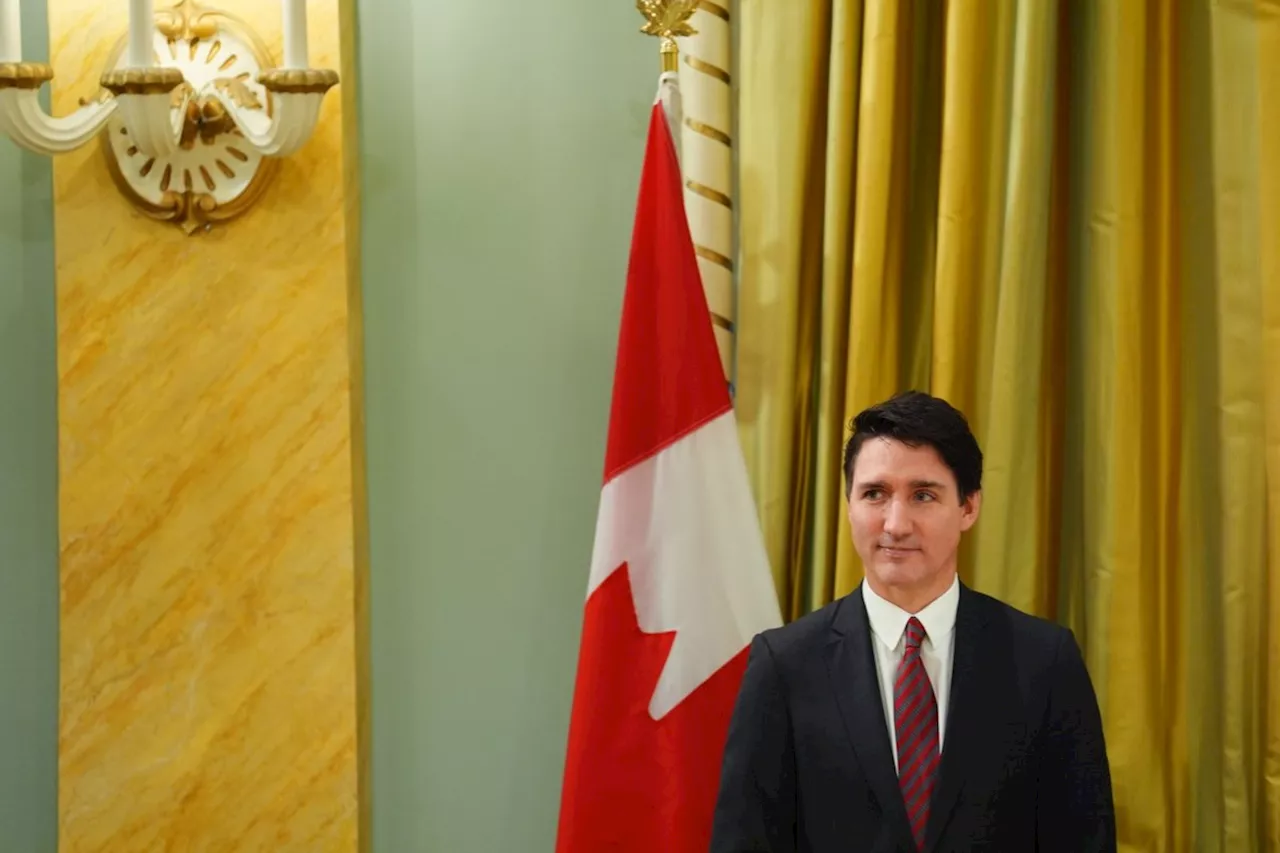 Canadian News Roundup: Trudeau's Departure, Trump's Threats, and Trudeau's Lost Cool FactorThis news roundup covers key Canadian stories, including the Liberal party's leadership race after Justin Trudeau's resignation, Donald Trump's threats of economic force against Canada, and the changing public perception of Trudeau's cool factor.
Canadian News Roundup: Trudeau's Departure, Trump's Threats, and Trudeau's Lost Cool FactorThis news roundup covers key Canadian stories, including the Liberal party's leadership race after Justin Trudeau's resignation, Donald Trump's threats of economic force against Canada, and the changing public perception of Trudeau's cool factor.
Read more »
 Donald Trump is trying to 'humiliate' Justin Trudeau with Canada jokes, ex-Trump adviser saysWhen Donald Trump jokes that Canada could become the 51st state, and refers to Justin Trudeau as a governor rather than prime minister, it’s all an effort to “humiliate” the Canadian leader, says John Bolton, his former national security adviser.
Donald Trump is trying to 'humiliate' Justin Trudeau with Canada jokes, ex-Trump adviser saysWhen Donald Trump jokes that Canada could become the 51st state, and refers to Justin Trudeau as a governor rather than prime minister, it’s all an effort to “humiliate” the Canadian leader, says John Bolton, his former national security adviser.
Read more »
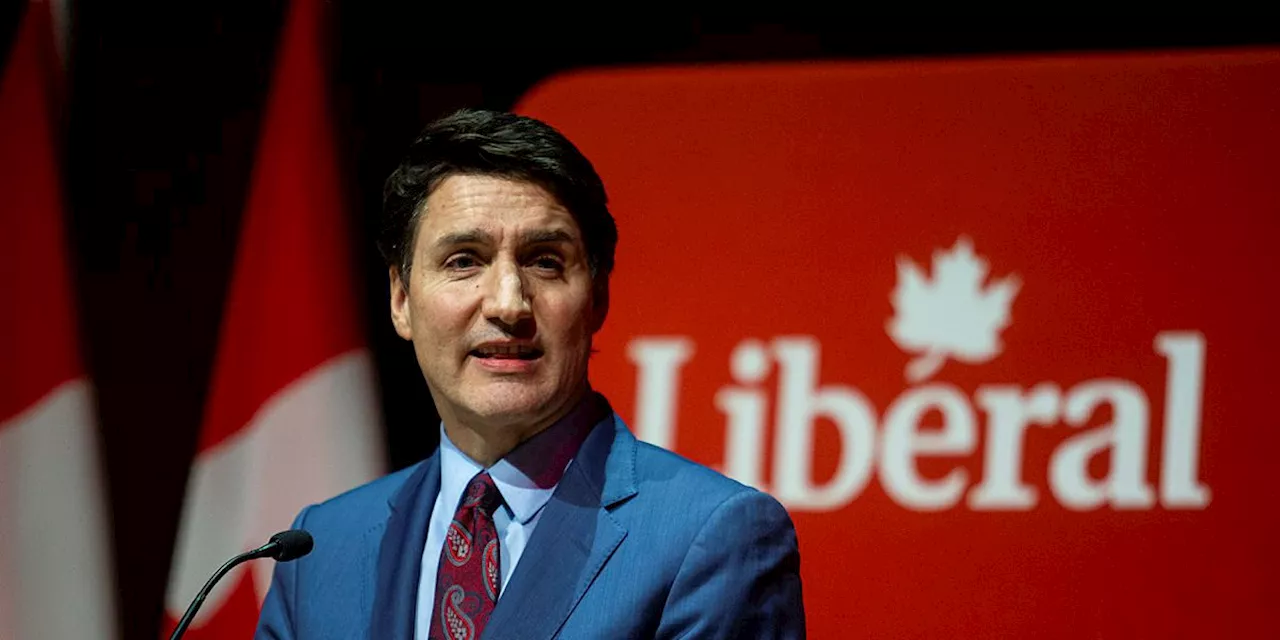 As Trudeau reflects on his political future, a flurry of post-Trudeau leadership politics already unfoldin ...The Hill Times
As Trudeau reflects on his political future, a flurry of post-Trudeau leadership politics already unfoldin ...The Hill Times
Read more »
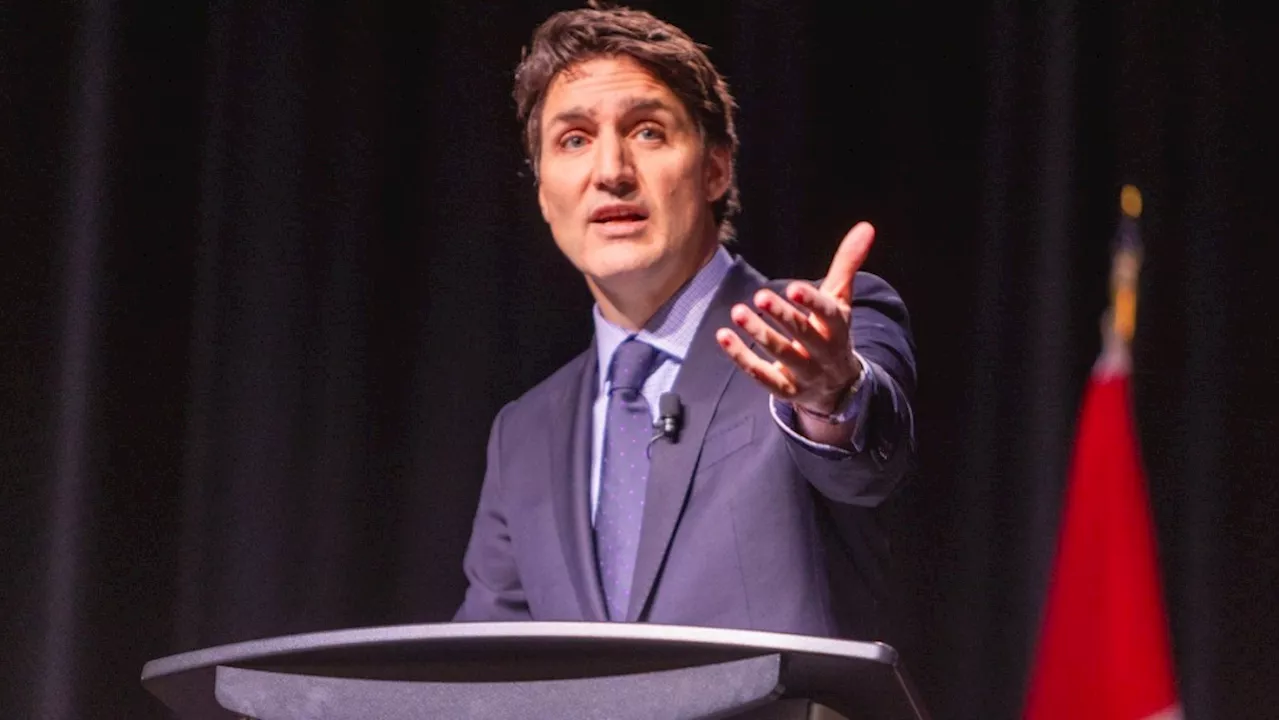 Dealing with Trump will be 'a little more challenging' than last time: TrudeauPrime Minister Justin Trudeau said dealing with incoming president Donald Trump and his thundering on trade will be 'a little more challenging' than the last time.
Dealing with Trump will be 'a little more challenging' than last time: TrudeauPrime Minister Justin Trudeau said dealing with incoming president Donald Trump and his thundering on trade will be 'a little more challenging' than the last time.
Read more »
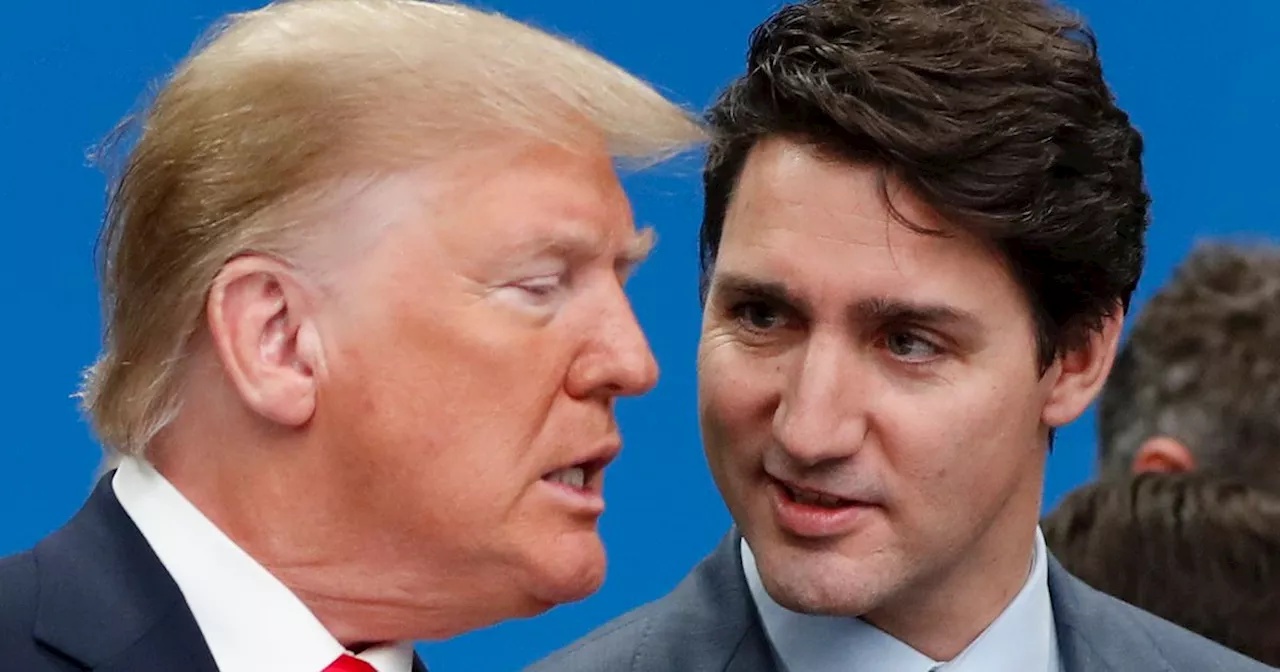 Trump Mocks Trudeau After Canadian Leader Warns Tariffs Will Hurt AmericansMarita Vlachou is a breaking news reporter for HuffPost based in London, United Kingdom.
Trump Mocks Trudeau After Canadian Leader Warns Tariffs Will Hurt AmericansMarita Vlachou is a breaking news reporter for HuffPost based in London, United Kingdom.
Read more »
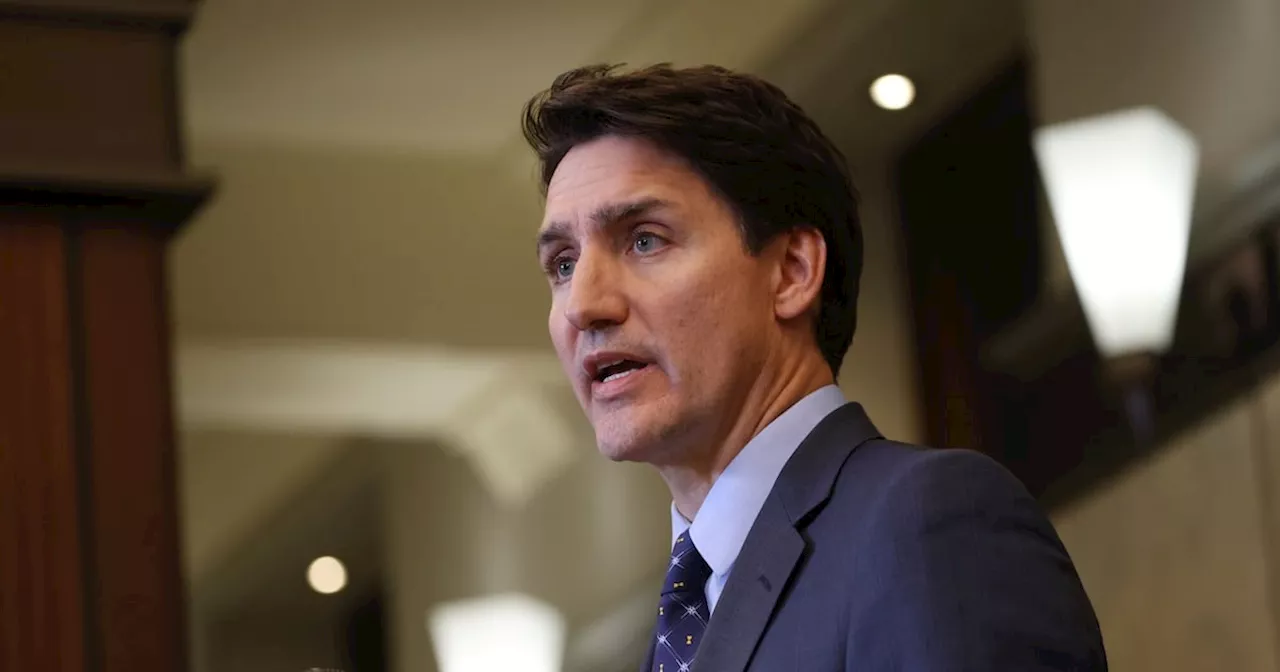 Trudeau Says Canada ‘Will Respond’ If Trump Imposes TariffsPrime Minister Justin Trudeau said Canada “will respond” if US President-elect Donald Trump imposes new tariffs on Canadian imports, and argued that retaliatory tariffs were successful when Trump put tariffs on Canadian steel and aluminum in 2018.
Trudeau Says Canada ‘Will Respond’ If Trump Imposes TariffsPrime Minister Justin Trudeau said Canada “will respond” if US President-elect Donald Trump imposes new tariffs on Canadian imports, and argued that retaliatory tariffs were successful when Trump put tariffs on Canadian steel and aluminum in 2018.
Read more »
